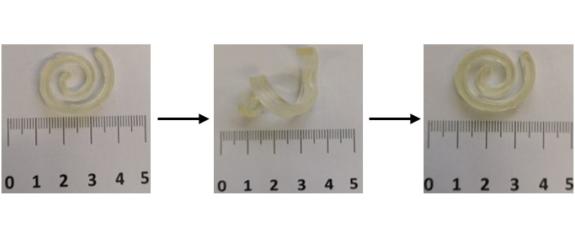Polymers (colloquially referred to as "synthetics" or "plastics") have become an integral part of our daily lives. They can be used to produce a wide variety of shapes and objects. For example, polymers are used for clothing (nylon, polyester), plastic bottles (PET), plastic cups (PP, PE, PS), CDs and DVDs (polycarbonates), glass substitutes (Plexiglas, polycarbonates) and even car fittings and mattresses (polyurethanes). These materials are also found in paints, varnishes, adhesives, detergents, cosmetics, etc. It is therefore almost impossible to experience everyday life "polymer-free" nowadays.
In addition to these generally known applications, the materials are also suitable for special applications: Polymer-based solar cells, light-emitting diodes or batteries, pharmaceuticals, etc. In many cases, the material properties can be improved if addressable/switchable polymers are used. Such materials are the focus of current research at the ZAF.
We present three special applications at various points in the ZAF: Polymers for controlled drug delivery in the body, self-healing polymers and shape memory polymers. In the case of self-healing polymers, damage (scratches or cracks) can be repaired by heat treatment. In the case of shape memory polymers, the original, "stored" shape can be regenerated accordingly. These properties result in a wide range of possible applications for everyday life.
In the modern research laboratories, we show, among other things, synthesis robots for the high-throughput synthesis of functional materials. We also present important techniques for processing polymers into desired shapes (e.g. 3D printing). In addition, the various possibilities for the investigation and characterization of polymer molecules are shown (chromatography, mass spectrometry, microscopy, etc.). Artificial intelligence (AI) is also playing an increasingly important role in polymer chemistry. We will present how digitalization and automation can be used in this context.
In the cell biology laboratory, newly developed polymer-based substances are examined for their biomedical applicability. With the help of various cell biological analysis methods, for example, research is carried out into how nanoparticles are taken up by cells, how active substances enclosed in them are released and how they then act in the cells. The aim is to develop new treatment strategies to combat diseases. These laboratories are also presented by the staff during guided tours.

